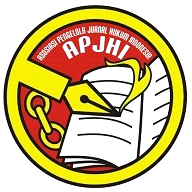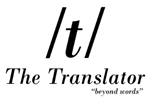Ius Constituendum on the Doctrine of Unlawful Nature in the Law on the Eradication of Corruption After the Constitutional Court Decision Number 003/PUU-IV/2006
Abstract
The unlawful teachings in the explanation of Article 2 paragraph (1) of the Law on the Eradication of Corruption have been considered by the Constitutional Court as a norm that is contrary to the Constitution of the Republic of Indonesia in 1945, and does not have binding legal force. This condition has legal implications for the meaning of unlawful elements in Article 2 paragraph (1) of the Law on the Eradication of Corruption, becoming vague (vague norm). The purpose of this study is to analyze the unlawful teachings in the Law on the Eradication of Corruption in Ius Constituendum. This research uses normative legal research, which formulates the aspired law (ius constituendum) on the meaning of the element against the law (wederrechtelijkeheid) in the Corruption Eradication Law after the Constitutional Court Decision Number 003/PUU-IV/2006. The results of the discussion show that by assessing the basis of the Constitutional Court's legal considerations (ratio decidendi) Number 003/PUU-IV/2006. The cancellation of the explanation of Article 2 paragraph (1) of the Law on the Eradication of Corruption which adheres to the teachings of the nature of the act of violating formal and material laws, because it is considered that the concept of materiele wederechtelijk, which refers to unwritten law, is an uncertain measure. The unlawful element in Article 2 paragraph (1) of the Law on the Eradication of Corruption Crimes is still interpreted as against formiele wedderechtelijkeheid and against materiele wedderecjhtelijkeheid in its negative function. As for its positive function, it must be considered contrary to the principle of protection and fair legal certainty regulated in Article 28D of the 1945 Constitution.
Keywords
Full Text:
PDFReferences
Adji, Indriyanto Seno. Pergeseran Hukum Pidana. Jakarta: Diadit Media, 2011.
Bemmelen, M. van. Hukum Pidana 1. Jakarta: Bina Cipta, 1984.
Chazawi, Adami. Hukum Pidan Korupsi Di Indonesia. Jakarta: Rajawali Press, 2016.
"”"”"”. Pelajaran Hukum Pidana Bagian 2 (Penafsiran Hukum Pidana, Dasar Peniadaan, Pemberatan & Peringanan, Kejahatan Aduan, Perbarengan & Ajaran Kausalitas). Jakarta: Rajawali Press, 2011.
Darmawati, Apriyanto Nusa &. Pokok-Pokok Hukum Pidana. Malang: Setara Press, 2022.
Effendy, Marwan. Teori Hukum. Ciputat : Referensi: Gaung Persada Press Group, 2014.
Fuady, Munir. Perbuatan Melawan Hukum. Bandung: PT. Citra Aditya Bakti, 2013.
Hiariej, Eddy O.S. Prinsip-Prinsip Hukum Pidana. Yogyakarta: Chaya Atma Pustaka, 2014.
Latif, Abdul. "No Title." Jurnal Konstitusi 7, no. 3 (2010).
Marzuki, Peter Mahmud. Penelitian Hukum. Jakarta: Kencana, 2014.
Prastowo, Budi. "Delik Formil/ Materiil, Sifat Melawan Hukum Formil/ Materiil Dan Pertanggungjawaban Pidana Dalam Tindak Pidana Korupsi Kajian Teori Hukum Pidana Terhadap Putusan Mahkamah Konstitusi RI Perkara No. 003/PUU-IV/2006." Jurnal Hukum Pro Justitita 24, no. 3 (2006).
Prinst, Darwin. Pemberantasan Tindak Pidana Korupsi. Bandung: PT. Citra Aditya Bakti, 2002.
Remmelink, Jan. Hukum Pidana Komentar Atas Pasal-Pasal Terpenting Dari Kitab Undang-Undang Hukum Pidana Belanda Dan Padanannya Dalam Kitab Undang-Undang Hukum Pidana Indonesia. Jakarta: Gramedia Pustaka Utama, 2003.
Saparadjaja, Komariah Emong. Ajaran Sifat Melawan Hukum Materiil Dalam Hukum Pidana Indonesia. Bandung: Alumni, 2013.
Seno Wibowo, Ratna Nurhayati. "Perbedaan Pandangan Ajaran Sifat Melawan Hukum Materiil Tindak Pidana Korupsi." Padjajaran Journal Ilmu Hukum 2, no. 2 (2015).
Sudharmawatiningsih. "Sifat Melawan Hukum Materiil Dalam Tindak Pidana Korupsi (Respon Terhadap Putusan Mahkamah Konstitusi)." Jurnal Ilmiah Hukum Dan Dinamika Masyarakat 5, no. 1 (2007).
Ulhaq. "Penerapan Sifat Melawan Hukum Materiil Dalam Putusan Hakim Di Pengadilan Tipikor Jakarta." Pandecta Jurnal Penelitian Ilmu Hukum 5, no. 2 (2010).
Undang-undang Nomor 20 Tahun 2001 tentang Pemberantasan Tindak Pidana Korupsi (n.d.).
DOI: https://doi.org/10.33756/jelta.v17i2.27960
Refbacks
- There are currently no refbacks.

This work is licensed under a Creative Commons Attribution-NonCommercial 4.0 International License.



.png)







_logo2.png)



